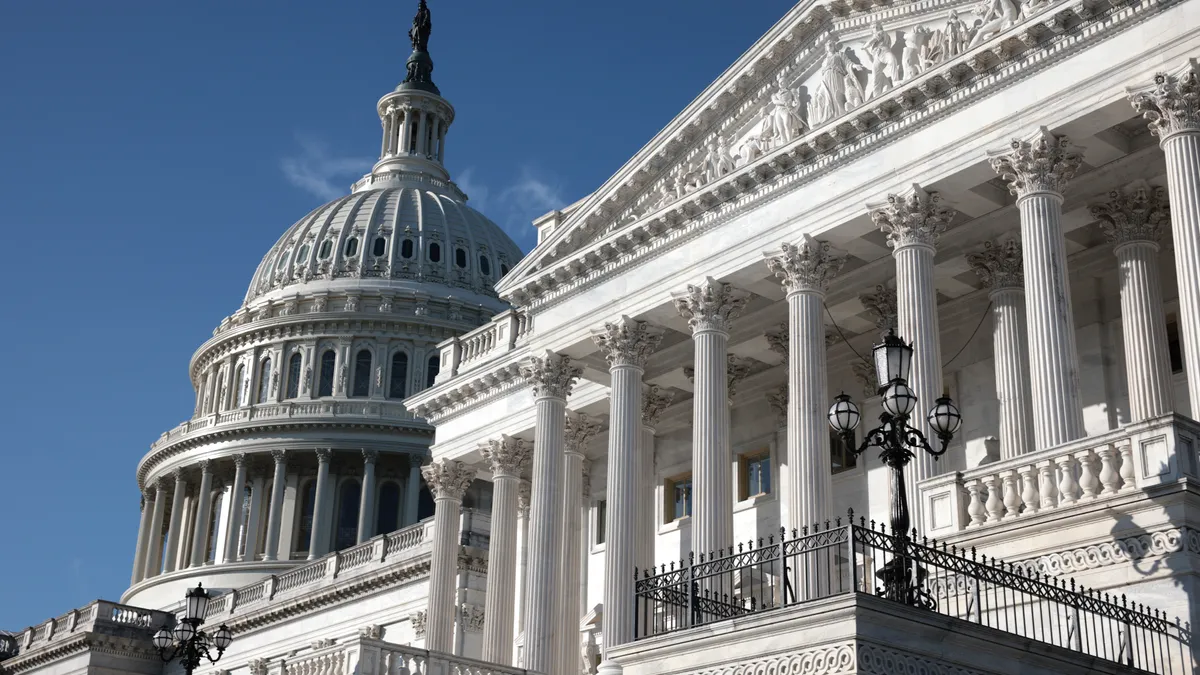Thirty-nine Republican senators, led by former presidential candidate Tim Scott, R-SC, urged the Federal Reserve, Federal Deposit Insurance Corp. and Office of the Comptroller of the Currency on Monday to withdraw a July proposal that would better align the U.S. financial system with the Basel III endgame but also increase capital requirements by between 5% and 20% for the nation’s largest banks.
The letter comes as representatives of all three agencies are set to testify Tuesday in front of the Senate Banking Committee, which Scott serves as ranking member.
At issue, the senators assert the proposal will hamper affordable housing, limit access to credit cards and home equity lines of credit, and restrict lending for mortgages, small businesses and everyday consumers.
Further, the proposal could prompt U.S. companies to get financial help from abroad, and hurt retirees by “forc[ing] pension funds to make a choice between paying more, or hedging less, with the only possible outcome being decreased returns.”
Pointedly, the senators argued the agencies failed to provide analysis showing the need to increase capital holdings.
“As with all regulations, the burdens must be justified and should not outweigh the benefits,” the senators wrote. “While the significant cost of this proposal is just now being understood, we have yet to see any evidence of its demonstrable benefits.”
The senators added that the increase in capital requirements goes against the spirit with which the Basel III framework was first proposed in 2017.
Scott and the co-signers are not the first lawmakers to criticize the proposal’s lack of hard data.
“The paltry 17 pages of impact analysis — out of the 1,087-page proposal — contain unsubstantiated assertions and citations to studies that often are too outdated to be relevant,” Rep. Patrick McHenry, R-NC, and two dozen fellow Republican lawmakers wrote the Fed, OCC and FDIC in September, calling the proposal “underdeveloped” and “deficient.”
Further, McHenry, who leads the House Financial Services Committee, accused the proposal of fulfilling a “partisan goal” — namely, reversing Trump-era legislation that tailored and eased capital requirements.
Scott, similarly, insinuated Monday that the proposal came as part of a “predetermined agenda,” writing that although the Fed had said for months that it was engaged in a holistic review of capital standards, “the results of that review have never been publicly disclosed outside of a speech by [Vice Chair for Supervision Michael Barr] summarizing the results.”
Scott credited the Fed, OCC and FDIC for extending the comment period on the proposal and conducting data collection, but called the effort “too little, too late.”
"It is disappointing to see a rule proposed that is over 1,000 pages long, lacking any quantitative analysis to suggest that the rule is even necessary,” Scott wrote. “Evidence of need must be demonstrated to warrant decisions of such profound magnitude, consequence, and enduring economic impact.”
In an opening statement released by the Fed, Barr — who testifies Tuesday — defended the proposal, saying community banks would not be affected.
“The proposed rules would apply to banks with at least $100 billion in assets, less than 40 of the over 4,000 banks in our banking system,” Barr said.
FDIC Chair Martin Gruenberg and Michael Hsu, the acting head of the OCC, are also set to testify Tuesday.
Spokespeople for the Fed and OCC declined to comment to Reuters regarding Monday’s letter. A spokesperson for the FDIC did not respond to a request for comment from the wire service.
The 39 senators who signed Monday’s letter included every Republican member of the Senate Banking Committee.














